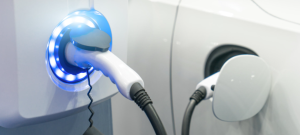Electric vehicles (EVs) are sustaining prominence throughout the automotive industry, and data from the second quarter of 2023 shows registrations are still on the rise.
According to Experian’s Automotive Consumer Trends Report: Q2 2023, 7.50% of new vehicle registrations were EVs, resulting in more than 2.7 million EVs in operation in the US, an increase from the approximate 1.7 million this time last year.
Though, despite the continued growth in EV popularity, data found that 85% of EV owners also have a gas-powered vehicle in their household garage and 11% have a hybrid vehicle. It’s possible that majority of consumers prefer to have a secondary vehicle for comfortability, considering charging stations aren’t as accessible in some states and gas operated vehicles offer more miles.
That said, it’s important for automotive professionals to have additional insight when helping consumers find a vehicle that fits their lifestyle, such as if they have plans to keep another vehicle in addition to their EV and the type of vehicle they’re interested in.
Luxury EVs dominate market share
When looking at new EV registrations by vehicle class in the last 12 months, luxury EVs accounted for 77.73%, while non-luxury made up the remaining 22.67%. It’s notable that Tesla led the luxury EV registration market share in Q2 2023 at 81.61%, followed by BMW at 4.42%, Rivian at 3.76%, Mercedes-Benz at 3.27%, and Audi coming in at 2.52%.
For non-luxury EVs, Chevrolet accounted for 24.21% of new registration market share this quarter and Ford was not far behind at 24.00%, followed by Volkswagen at 15.77%, Hyundai at 15.22%, and Kia at 9.17%.
Breaking the data down further, Tesla made up four of the top five models for luxury EVs in Q2 2023, which explains the dominance in overall luxury EV market share. This quarter, the Model Y came in at 47.36%, followed by the Model 3 at 27.30%, the Model X (4.42%), the BMW i4 (2.82%), and the Model S (2.53%).
Meanwhile, the Chevrolet Bolt EUV accounted for 17.67% of the non-luxury EV market share in Q2 2023 and the Volkswagen ID.4 came in second at 15.77%, followed closely by the Ford Mustang Mach-E at 15.74%, and the Hyundai IONIQ 5 at 11.13%.
Despite Tesla comprising the majority of luxury EV market share, something professionals should keep in mind is other OEMs making their way into the market, which will give consumers more models to choose from as the gas alternative vehicles continue to grow in popularity. This will be important data to leverage in years to come when helping a consumer find a vehicle.
To learn more about EV insights, view the full Automotive Consumer Trends Report: Q2 2023 presentation.



